Search
Search Results
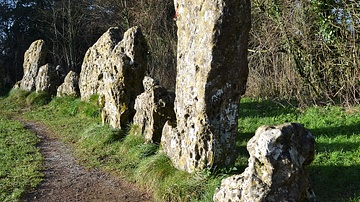
Article
Legends of the Rollright Stones, Oxfordshire
The Rollright Stones is the collective name for a group of enigmatic prehistoric monuments located next to an ancient ridgeway known as the Jurassic Way, on the border between the English counties of Oxfordshire and Warwickshire. The name...

Image
Moabite Stone
The Moabite Stone, an ancient tablet dating to around 850 BCE, written by Mesha, the king of Moab (modern Jordan). (Louvre Museum, Paris)
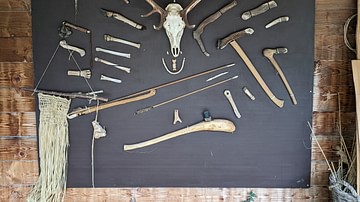
Image
Stone Age Tools Made From Antlers
Modern recreations of Stone Age tools: knives, arrows, hatchets, axes, and daggers, made of deer antlers.
Pile-Dwelling Museum in Unteruhldingen at Lake Constance, Germany.
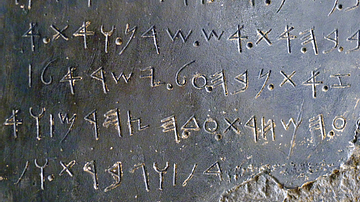
Image
Detail, Moabite Stone
A detail of the Moabite Stone, an ancient tablet dating to around 850 BCE, written by Mesha, the king of Moab (modern Jordan). (Louvre Museum, Paris)

Definition
Cullinan Diamond
The Cullinan Diamond was discovered in Transvaal, South Africa in 1905 and presented as a birthday gift to Edward VII of England (r. 1901-1910) by the Transvaal Government. It weighed well over 3,000 carats, making it the largest gem-quality...

Definition
Paleolithic
The Palaeolithic ('Old Stone Age') makes up the earliest chunk of the Stone Age – the large swathe of time during which hominins used stone to make tools – and ranges from the first known tool use roughly 2,6 million years ago to the end...
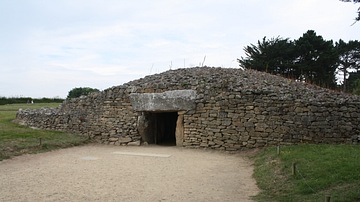
Definition
Locmariaquer
Locmariaquer is a Stone Age site in north-west France distinguished by its two large stone tombs and massive granite standing stone or menhir. The monumental structures, all built within metres of each other, were built in the 5th millennium...

Image
Stone of Scone Replica
A replica of the Stone of Scone (aka Stone of Destiny) at Scone, Perthshire, Scotland. The stone was used in the coronation ceremonies of Scottish medieval kings before its transferral to Westminster Abbey in 1297 CE. The original stone...

Definition
Ancient Scotland
Scotland is a country which, today, comprises the northern part of Great Britain and includes the islands known as the Hebrides and the Orkneys. The name derives from the Roman word "Scotti" which designated an Irish tribe who invaded the...
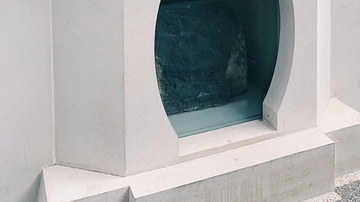
Image
London Stone
On Cannon Street in the City of London, you can watch the London Stone. The stone's origin is unknown, but its importance as a landmark throughout London’s long history is almost incomparable, especially when thinking about the simplicity...